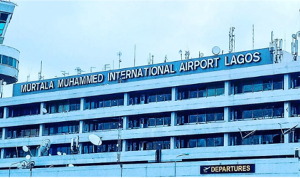On Wednesday, March 20, two weeks after the state of Ghana celebrates the 45th anniversary of the break with the British colonial masters, the nation will stand still to her the reasons behind the landmark judgment of Thursday, February 28 in which five Supreme Court judges against four, consigned the Fast Track High Court into oblivion.
Whatever reasons are assigned, especially by the five judges who upheld Tsatsu Tsikata’s submission, indications are that the decision to declare the setting up of the Fast Track High Court unconstitutional, has touched on raw nerves at the Justice Department.
At the Supreme Court Building in Accra, which houses the registry of all the superior Courts of Adjudication- from the Appeal Court to the Supreme Court, tempers were virtually flayed by the judgment when the Public Agenda visited on Friday. A top official at the Judicial Secretariat, the paper spoke to tried very hard to restrain himself. But he was visibly angered by the decision to declare the Fast Track High Court unconstitutional.
“Those judges have done a great damage and disservice to the Justice system in this country of which they are serving. This (Fast Track High Court) was not something that was forced on us. It was something discussed and carefully planned before implementation stage. It involved all of us at the Department. The judges were never left out. If there is something wrong with it, they (judges) should have pointed them out long before the implementation stage. They should not sit there unconcerned before going to throw everything we have worked very hard for overboard.”
The Fast Track High Court, the paper learnt, was inaugurated on March 30, 2001 after several months of planning. There are now three of such courts in Accra. Kumasi, Sekondi-Takoradi and Koforidua are penciled in for similar treatments. At the entrance to the registry of the High Court, the presence of the Fast Track Court is announced by an inscription on the first door to the right.
The Fast Track, part of the High Court’s been established to deal with Investors and Investment cases, Bank Cases: Specified Commercial and Industrial Cases, Election Petition Cases, Human Rights Cases, Defamation Cases, Revenue Cases ie IRS, CEPS, etc. Prerogative Writs and Criminal Cases.
Referred to in official documents as Fast Track High Court, its judges, like the High Court, could be drawn from high court judge to Supreme Court judges. “It is only a High Court where we have mechanised court proceedings. All that means is that the process frees the judge to concentrate on the case as opposed to the tedious process of putting down everything in long hand while listening to submissions at the same time,” a top official Public Agenda spoke to explained.
“We are in the age of technology. We in this part of the world are just trying to catch up with the developed world, technologically. Increases in population has obviously had a corresponding increase in court cases so the only way to deal effectively with the situation is to introduce technology which we did.”
Asked about how he felt about the judgment, this is how the official answered: “I feel very bad. All the judges have been part of the new phase we are giving to the courts. If there is something wrong, why did they not point out all this while? At worse, I thought they would only ask the judiciary not to tag the courts fast track. Something like the High court with Fast Track process, would have done perfectly. I think we have been stitched. It is an internal problem and we have to deal with it,” he asserted.
An official of the Attorney-General’s Department was obviously disappointed. “It is a shame that this judgment comes at a time that even laymen believe modernizing the courts is one sure route to effective justice. It is a bit disappointing but we are sure that a Judicial Review will set the records straight.”
In far away Singapore, where President Kufuor was preparing to travel to Australia for the Summit of Commonwealth Heads of State, he reaffirmed his government’s determination to press ahead with the mechanisation of courts in the country. He said fast tracking of our courts is one sure way of assuring potential investors that they could deal with litigation on the industrial front with minimum of delay.
The Minister of State for Media Relations Elizabeth Ohene told newsmen on the Presidential entourage that the President had instructed the Attorney General and Minister of Justice Nana Addo Dankwa Akuffo Addo to seek the necessary review that would put the matter to rest.
At the Fast Track High Court Registry in the Supreme Court building, the mood was one of disappointment tinged with frustration. “We don’t know how ruling like these would lead the nation. It is one of my saddest days as a staff of the Judicial Service.”
Not all Ghanaians were unhappy with the decision though. Alhaji Muhammed Mumuni, National Democratic Congress (NDC) Member of Parliament for Kumbungu could not hide his glee. “The Fast Track Court is a Kangaroo court,” he told an Accra FM station.”
Coming from the NDC, he should have captured a better description for the Fast Track Court. Most Ghanaians above the age of 40 cannot claim ignorant of the kind of Kangaroo courts where those dispensing justice hid behind a screen and pronounced judgments on people most of whom were tortured as the so-called People’s Court pronounced them guilty. Politics and reasoning appear to have parted ways in this country.
General News of Monday, 4 March 2002
Source: Public Agenda
Fast Track ruling touches on judicial nerves
Opinions











